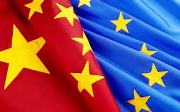
Informations pratiques
Centres et programmes liés
Ceci est un événement réservé.
En savoir plus sur nos programmes de soutienThe EU is now China"s most important trading partner while China is the EU"s second most important partner after the US. With such an intensive trade relationship, it should come as no surprise that trade tensions have intensified between the two partners, particularly on issues such as market access and intellectual property rights, anti-dumping and other trade-remedy instruments. At the same time, the importance of the trade relationship makes it all the more important to find mutually beneficial solutions to these conflicts. The objective of this meeting is first to clarify European and Chinese economic policies towards each other and how they are formulated, and secondly to highlight various challenges seen from both sides and suggest ways of moving the relationship forward.
8:45 - Welcome addresses
Thierry de Montbrial, Founder and President of Ifri
Qu Xing, President of the China Institute of International Studies (CIIS)
9:10 - Formulating European and Chinese trade strategies
Mauro Petriccione, Director for Asia and Latin America, DG Trade, European Commission
Paul Hunsinger, Special Representative of the Director General for International Affairs, Direction générale du Trésor, France
Michael Smith, Jean Monnet Professor of European Politics, Loughborough University
Jin Ling, Research Fellow, Department for European Studies, CIIS
Chair: Françoise Nicolas, Director, Ifri Center for Asian Studies
10:45 - Networking/refreshment break
11:00 - Understanding and overcoming trade irritants
Cui Hongjian, Director, Department for European Studies, CIIS
Françoise Nicolas, Director, Ifri Center for Asian Studies
Raphael Leal-Arcas, Professor, International Economic Law, Queen Mary University, London
Chair: John Seaman, Research Fellow, Ifri Center for Asian Studies
12:30 - Concluding remarks
Autres événements

Sécurité collective et pivot américain : les enjeux de burden-shifting/burden-sharing en Europe
L’Ifri accueille l’amiral Pierre Vandier, Commandant suprême allié pour la transformation de l'OTAN, le 15 janvier 2026 à 9h30, à l’occasion d’un BBS consacré aux enjeux du burden-sharing.

André Beaufre, un stratège pour notre temps
Relire Beaufre aujourd’hui !
Le célèbre auteur d'Introduction à la Stratégie (1963), le général André Beaufre (1902-1975) n’a pas dit son dernier mot. Ses concepts-clefs demeurent pertinents.

L’économie européenne et ses entreprises face au risque géopolitique : approches croisées
Les tensions géopolitiques deviennent une contrainte et une source de risque majeure pour l’économie européenne et ses acteurs privés comme publics.










